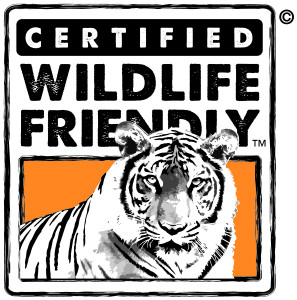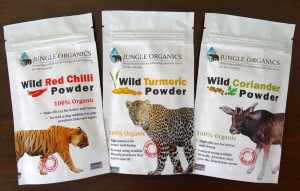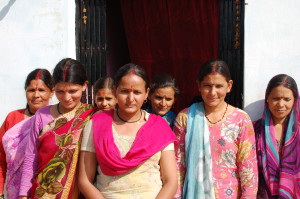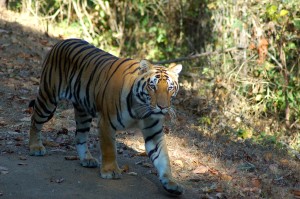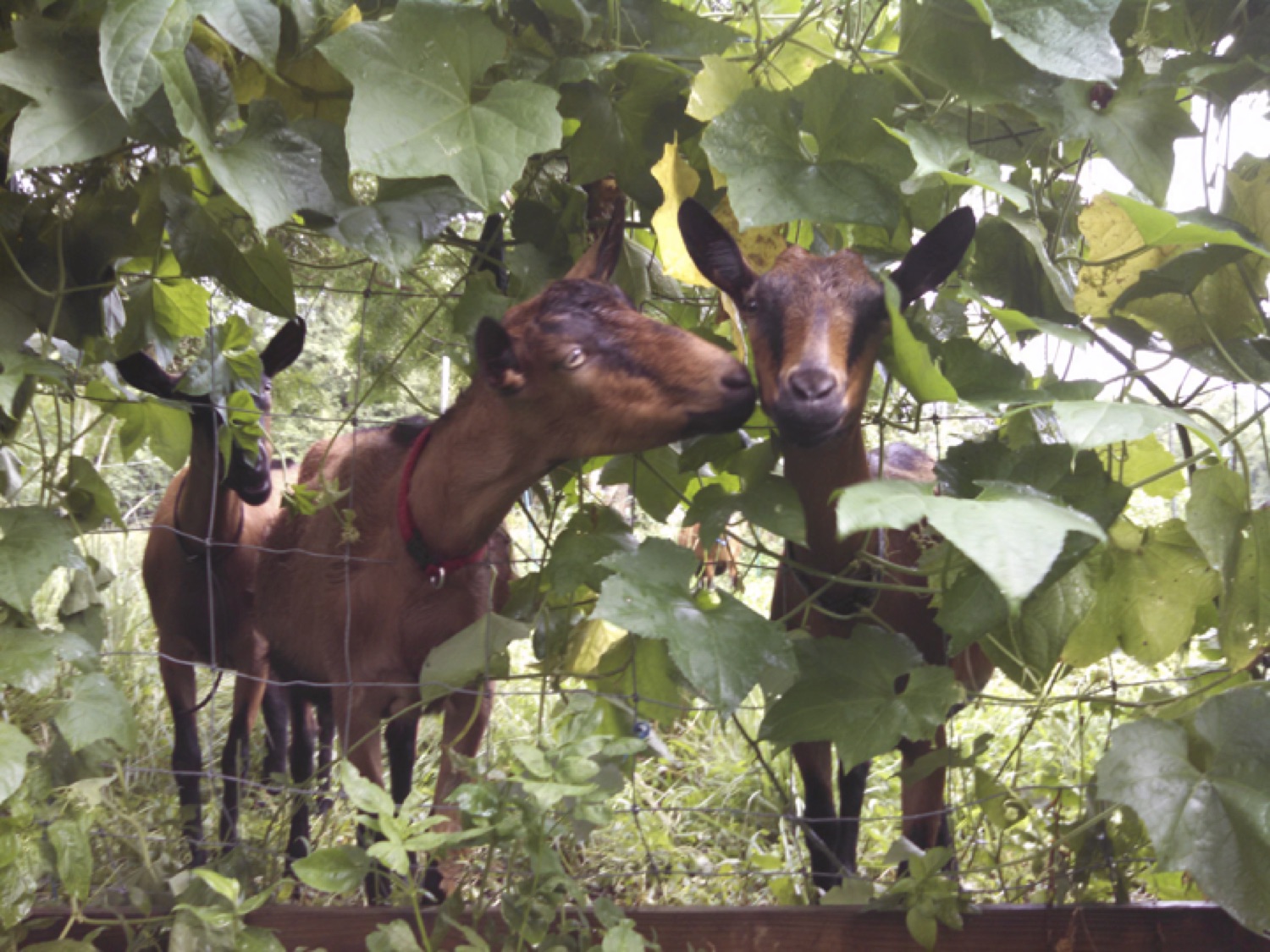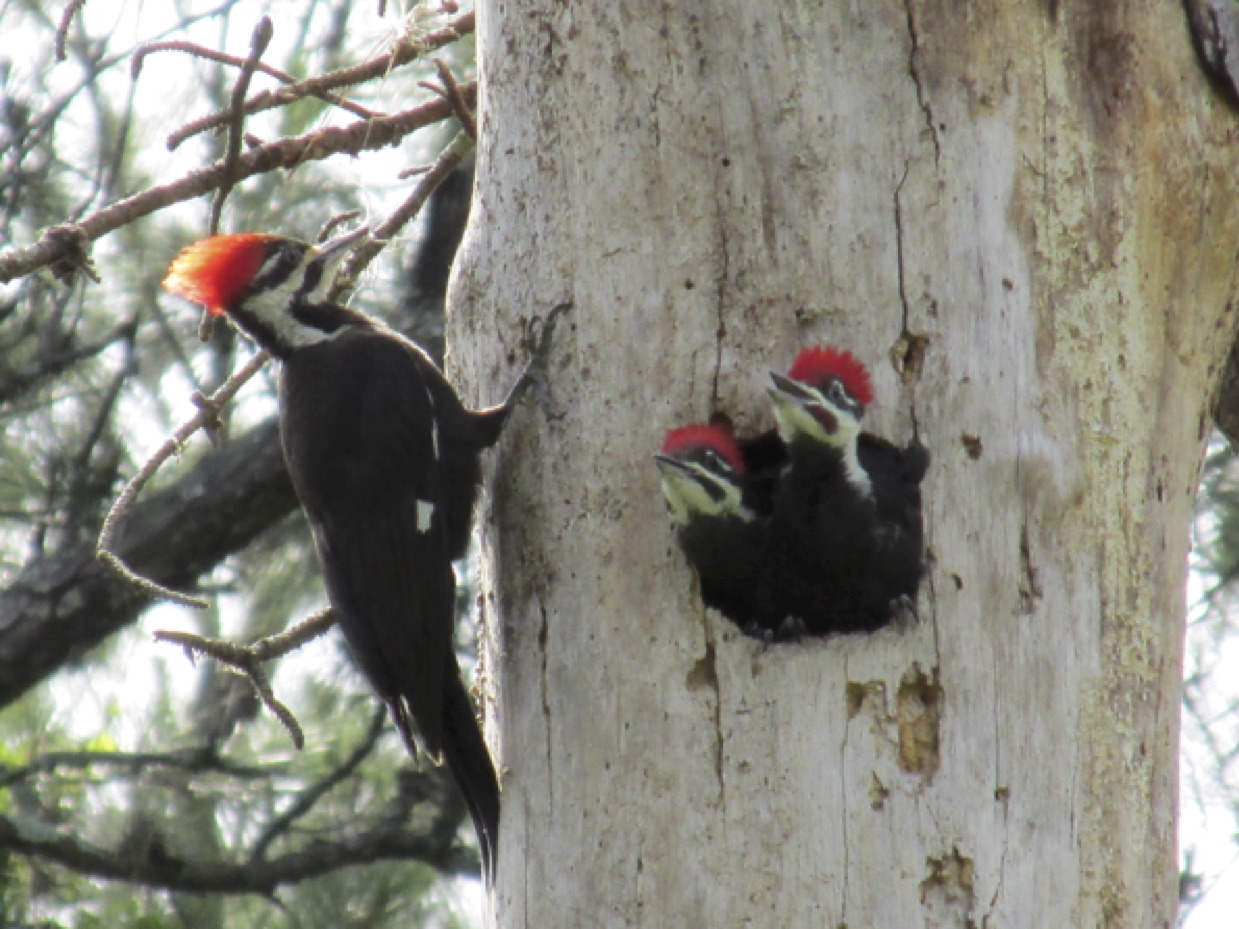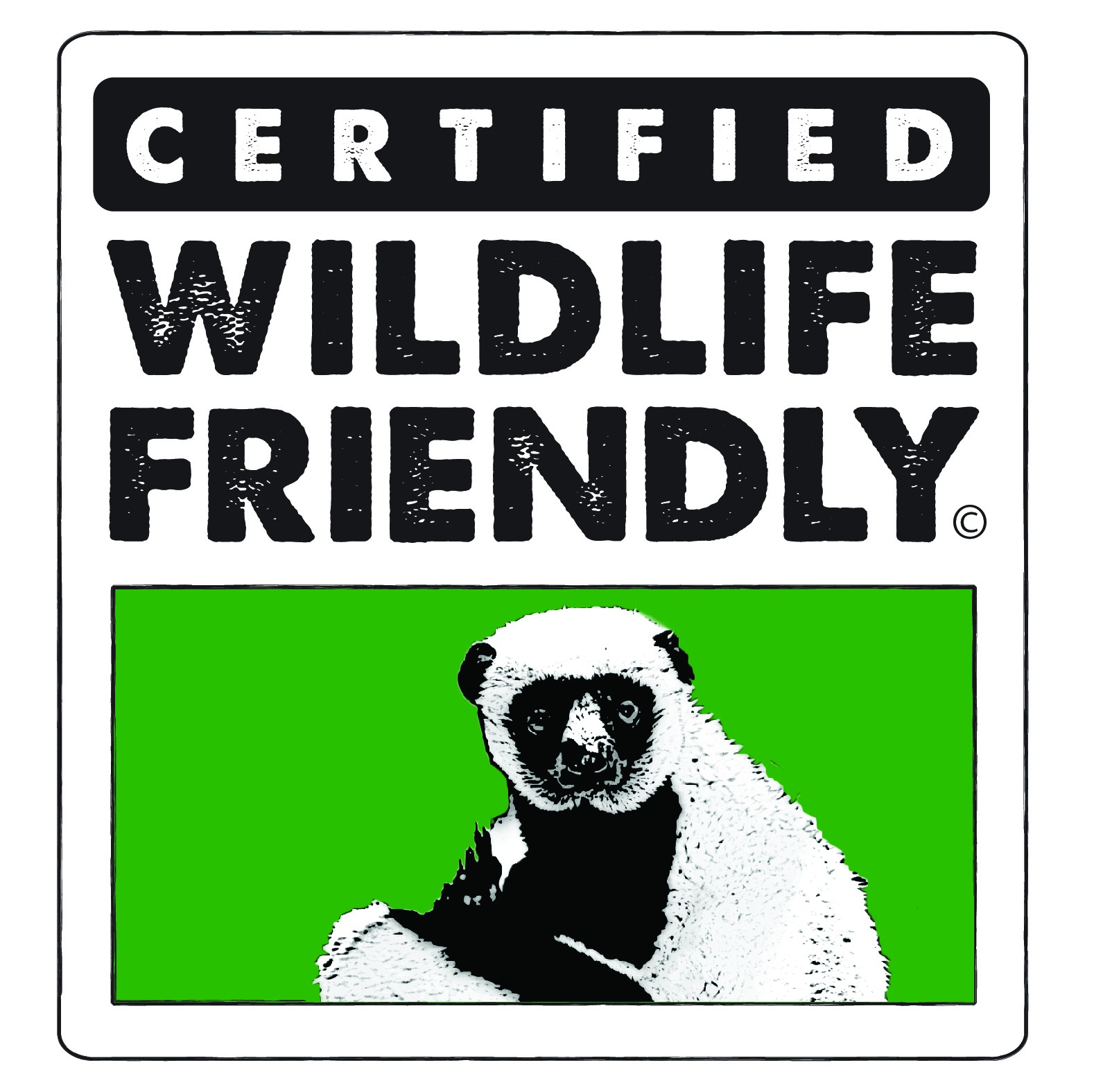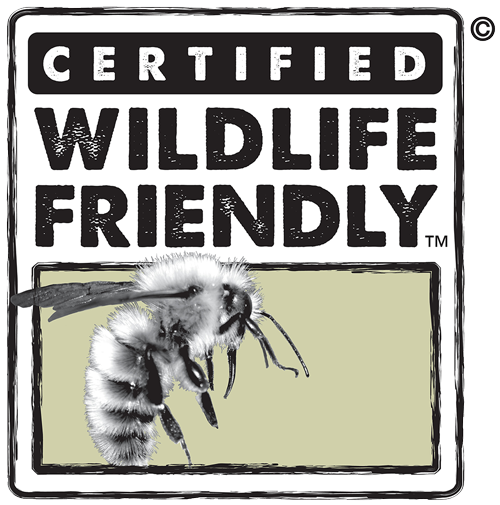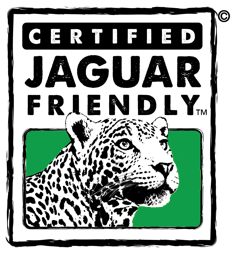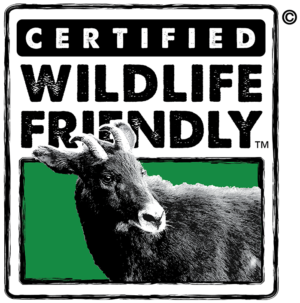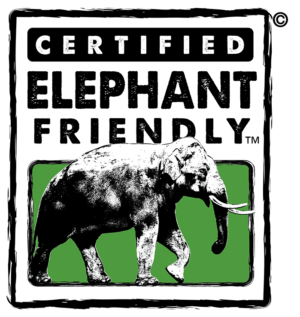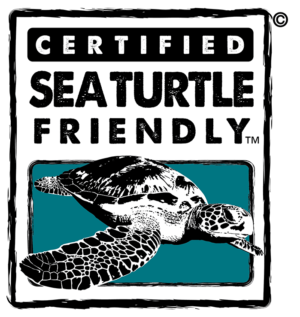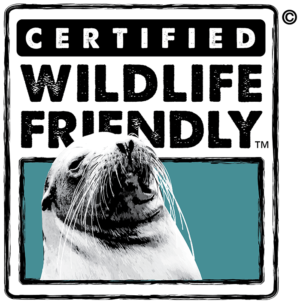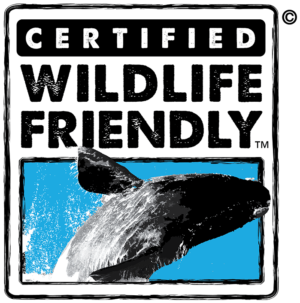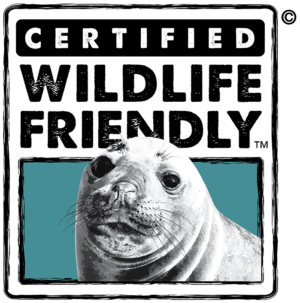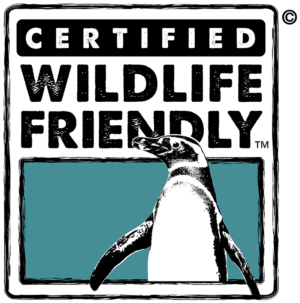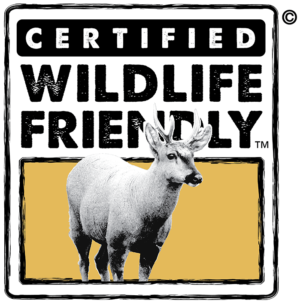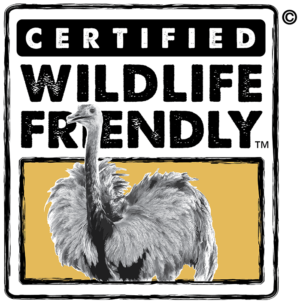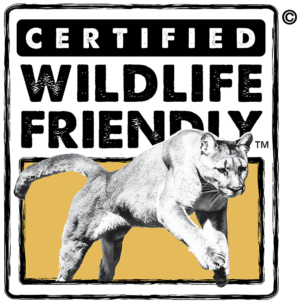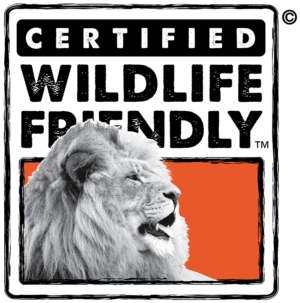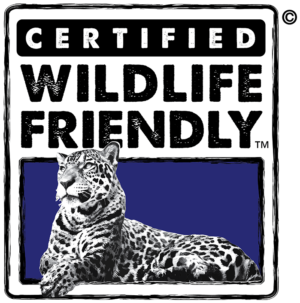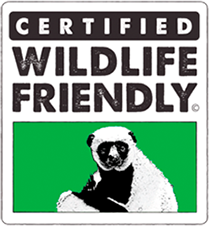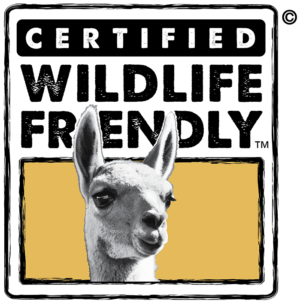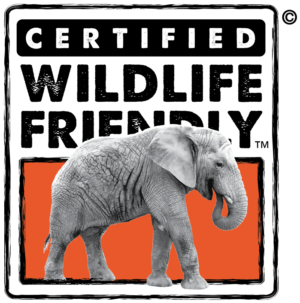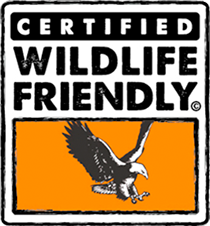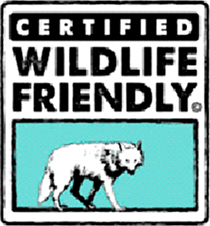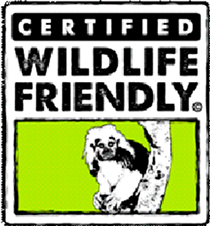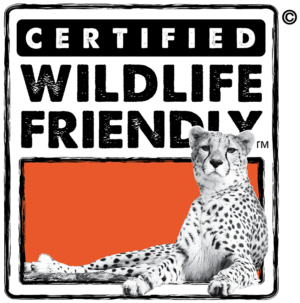First Certified Wildlife Friendly™ Enterprise in India Conserves Tigers & Leopards
New conservation enterprise, Jungle Organics™, supports smallholder women farmers producing high quality spices in harmony with wildlife
FOR IMMEDIATE RELEASE
NEW DELHI, India – OCTOBER 26 2016 The Wildlife Friendly Enterprise Network (WFEN) and Jungle Organics™ headquartered in New Delhi, India are pleased to announce that Turmeric Powder, Ground Red Chili Pepper and Coriander Powder grown adjacent to Jim Corbett National Park – core habitat for tigers, leopards, elephants and other globally vulnerable wildlife – have earned Wildlife Friendly™ certification under the Jungle Organics™ brand. The spices are grown on women-operated organic farms that provide safe passage through an important corridor for wildlife as well as access to fresh water sources. In addition, unlike many other crops which are attractants to wildlife, these aromatic spices are not an attractant and actually tend to reduce human-wildlife conflict leading to better attitudes and greater acceptance among local communities towards wildlife. As a result there are fewer retaliatory killings of big cats which are already in jeopardy globally.
“This project hits the mark on so many counts,” said WFEN Director Julie Stein. “From research around the world we know that empowering rural women is the key to food security, nutrition and poverty reduction. And with apex predators in trouble everywhere we are delighted to welcome not only our first enterprise in India – but our first protecting tigers – a flagship endangered species with only a few thousand remaining in breeding populations in the wild. Jungle Organics™ is truly a leading edge conservation enterprise and was formed from inception around the concept of Wildlife Friendly™ farming. We are thrilled to see this kind of entrepreneurial innovation popping up in different ways around the world and supporting wildlife, women and their families. It is proof-of-concept that coexistence with large carnivores can work to support the triple bottom line of people, planet and profit.”
“Subsistence farmers are coexisting with wildlife across India, making the crops they produce and the role their farms play in allowing wildlife to roam free truly unique. The presence of tigers and leopards on the farms is an indicator of the health of the ecosystem and means that the spices and herbs are grown in pristine environments thriving on water from Himalayan rivers and nutrient rich soils. This results in higher potency spices and herbs with better medicinal properties that can contribute to health and well-being. We are excited to see recognition of the linkage between Wildlife Friendly™ farming and production of superior quality ingredients based on the interest coming from Delhi, Bombay and other cities, to purchase our products” said Jungle Organics™ Founder Kaavya Varma, who is an expert in implementing green economy strategies. “This is particularly critical because if spices that are used on an everyday basis can also contribute to protecting big cats then it is much easier for everyone to participate in saving tigers and leopards and can make conservation more mainstream.”
“With the multiple human-caused threats faced by wildlife, it is significant that Uttarakhand is the first place where the State Government has been forward thinking in supporting this enterprise” Ms. Varma explained, “and the State Organic Commodity Board has shown great leadership in partnering with Jungle Organics™ to enhance the livelihoods of small-holder farmers and create awareness amongst farmers about wildlife. These agricultural practices can have a significant impact on conservation and the incomes of women farmers in remote areas.”
In addition to tigers, other threatened and endangered wildlife using these forests and farms as habitat and corridors include leopards, Asiatic black bears, tigers, Himalayan serow, ghural, pangolins, elephants, peacocks, wild boars, sambar deer, porcupines, monkeys and kakar or barking deer. The farms are unfenced, making them particularly Wildlife Friendly™, and farmers use low tech but highly effective and labor intensive foot patrols throughout the night in separate groups of women or men making noises to reduce crop destruction.
Uttarakhand State contains the highest amount of forest cover in India and is home to 1000 leopards and 340 tigers, 10% and 16%, respectively, of the total populations of both animals in India. Leopards and tigers are threatened everywhere they still exist by poaching, a decrease in their prey base, protected area encroachment, deforestation, and roads. Nearly 70% of the farmers in India are smallholder family operations and many of them live in landscapes that overlap with wildlife making it especially important that Indian models of conservation support these farmers and that best practices which support wilderness and biodiversity conservation are replicated in other States beyond Uttarakhand.
###
About Jungle OrganicsTM
Jungle OrganicsTM works with 100% organic certified farmers who consciously choose to live by forests and wildlife, for the authenticity of their produce, even at the cost of low-yields on their lands. Using wildlife friendly practices, they ensure minimal human intervention to avoid taking away from the originality of the spices and herbs they grow. Our goal is to offer authentic spices and herbs, by supporting and resurrecting pristine farming practices that emphasize coexistence with wildlife, and thus, reduce wildlife-human conflict and the consequent damage that follows.
About Wildlife Friendly Enterprise Network
WFEN and its Certified Wildlife Friendly®, Predator Friendly®, Certified Gorilla Friendly™, and Jaguar Friendly™ and Sea Turtle Friendly™ certification programs represent grassroots farmers, ranchers, artisans, indigenous communities and conservation heroes from around the world including two World Bank Development Marketplace Award winners, a U.N. Equator Prize winner, leadership in the world’s marketplace for REDD+ Carbon Offsets, a Time Hero for the Planet, and a National Geographic Big Cats Initiative grantee. Certified Wildlife Friendly® products contribute to the conservation of over twelve million hectares of diverse wetlands, forests, and grasslands; protect keystone endangered species in Asia, Africa, Europe, the Americas, including the Snow Leopard, Elephant, Tiger, Cheetah, and Wolf; and benefit over 200,000 people through increased food security, income and employment. For more information visit: www.wildlifefriendly.org
Contacts:
Julie Stein, Executive Director
Wildlife Friendly Enterprise Network
julie@wildlifefriendly.org
Kaavya Varma, Founder & CEO
Jungle OrganicsTM
kaavya@jungleorganics.in
Hammock Farm Gourmet of Brooksville Provides Wildlife Habitat for Native Reptiles and Mammals While Producing Gourmet Meats and Eggs
Brooksville, FL (JULY 10, 2015) For Certified Wildlife Friendly® agricultural producer Jean White of Hammock Farm Gourmet, allowing wildlife to flourish is as critical as caring for her cornucopia of pasture-raised meat goats, pigs, sheep and chickens.
“We had a pig wallow full of [native] tadpoles I kept putting water into,” says Jean. Whenever Jean can encourage local wildlife to succeed in the face of Florida’s tide of invasive species, she takes action. “We need to pay attention to all the little creatures,” says Jean, noting that she has a butterfly garden on the 22 acre property—which includes 7 acres of forest—and leaves stands of native plants, including elderberries and wild persimmons, to provide food and habitat for wildlife, especially birds.
Larger wildlife also make use of the farm, which lies on the flight path between an eagle’s nest and its fishing spot. With avian predators, bobcats and deer as regular visitors to a creek that borders the property, acting to keep Hammock Farm Gourmet’s heritage breed animals safe from predators is an integral part of life on the farm. In order to protect her newborn kids and lambs, Jean keeps them in pastures nearby to frequent human activity. Chickens, which are on pasture during the day, are enclosed at night in a well-secured coop.
Jean has also found that she has better success with Australorp chickens, a heritage breed with a larger body size with black feathers. Lightered-colored chickens, as well as smaller birds, appear to be preferred by hawks. “We do our best to make sure we’re not inadvertently feeding the wildlife while still making sure they can pass through our property and go about their daily business,” says Jean.
“In our state, the corridors for bears and panthers are on cattle ranches,” she says. “We need consumers to understand the connections between farming and conservation.” By gaining recognition for Hammock Farm Gourmet as a Certified Wildlife Friendly® farm, Jean is glad showcase how agriculture and conservation fit together. Read more »
Shea Terra Organics’ Tamanu Oil is Now Certified Wildlife Friendly®
The natural skin care company has partnered with Wildlife Friendly Enterprise Network in an effort to help conserve biodiversity and create jobs in Madagascar
FOR IMMEDIATE RELEASE
Sterling, VA, March 2014 – For over a decade, Shea Terra Organics, a natural skin care line made using indigenous African ingredients, has provided 100% Pure Tamanu Oil (Certified Organic) from Madagascar. Starting this month, the oil that customers have come to love for its healing and anti-aging benefits will now be Certified Wildlife Friendly®. This new development comes as a result of Shea Terra Organics purchasing tamanu oil from a trading company in Madagascar that is certified by the Wildlife Friendly Enterprise Network (WFEN), whose goal is to help create jobs for communities in high poverty areas while also conserving Madagascar’s biodiversity.
Shea Terra Organics’ Tamanu Oil will now directly support the Vohibola forest, the last remaining forest on the eastern central coast of Madagascar with numerous endemic species. The Vohibola forest hosts four species of trees threatened with immediate extinction that cannot be found anywhere else on earth, one of which has only 33 specimens left. This project helps to ensure the sustainable management and conservation of biodiversity. It also helps local communities benefit from additional employment opportunities, improved income, larger profit margins, as well as access to training and education on sustainable business practices. Read more »

